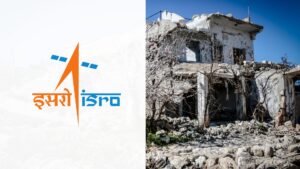India has once again demonstrated its leadership in space-based disaster management. ISRO has assumed the role of lead agency for the International Charter on Space and Major Disasters for six months starting April 2025, the space agency announced on Saturday.
 ISRO Hosts 53rd International Charter Meeting in Hyderabad
ISRO Hosts 53rd International Charter Meeting in Hyderabad
The tenure began with ISRO’s National Remote Sensing Centre (NRSC) organizing the 53rd meeting of the Charter in Hyderabad from April 14 to 17. According to ISRO, the meeting saw the participation of major global space agencies, with 22 foreign delegates attending in person. All were engaged in discussions and planning for space-based disaster management activities.
India a Founding Member of the International Charter
India is a signatory and founding member of the International Charter, which celebrates its 25th anniversary in 2025. The Charter functions as a collaborative framework involving 17 member organizations. These agencies voluntarily provide Earth observation data and value-added products to manage disasters occurring around the world, ISRO said in a statement.
ISRO Chairman Reaffirms Commitment to Space-Based Disaster Support
ISRO Chairman S. Somanath addressed the board members of the International Charter during the meeting, reiterating India’s strong commitment to using space technology for disaster management and support. He emphasized ISRO’s ongoing efforts to contribute to global disaster relief through its advanced space assets.
Coordinating Global Disaster Response for the Next Six Months
During the six-month leadership period, NRSC/ISRO will coordinate the Charter’s global disaster response efforts. This will include managing activation requests, ensuring rapid dissemination of satellite-based products, leading strategic planning, and facilitating training, outreach, and capacity-building activities.
ISRO will use its space-based assets to provide timely support for disaster management worldwide, strengthening international collaboration and resilience.
How This Leadership Role Will Help India Strengthen Its Own Disaster Response
- Faster Access to International Data and Resources: Leading the Charter gives India quicker and wider access to earth observation data from other space agencies during disasters. In the event of floods, cyclones, earthquakes, or landslides, ISRO can tap into a global network of satellites immediately, allowing faster damage assessment and response planning within the country.
- Improved Expertise in Handling Complex Disasters: Coordinating responses to disasters around the world will enhance India’s operational experience in dealing with a variety of emergency scenarios.
- Stronger Global Collaborations: By working closely with global space agencies, India can foster stronger partnerships that will benefit long-term collaboration, training, technology sharing, and emergency preparedness for complex disasters like coastal floods, cyclones, and wildfires.
- Better Preparedness through Training and Capacity Building: As NRSC will organize training and capacity-building programs, Indian disaster management agencies like the National Disaster Management Authority (NDMA) and State Disaster Response Forces (SDRFs) can directly benefit from advanced satellite data interpretation skills and better decision-making tools.
